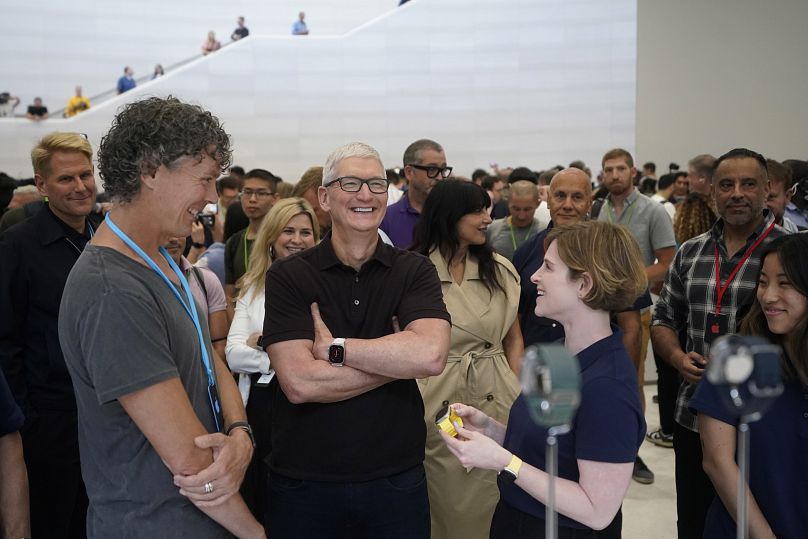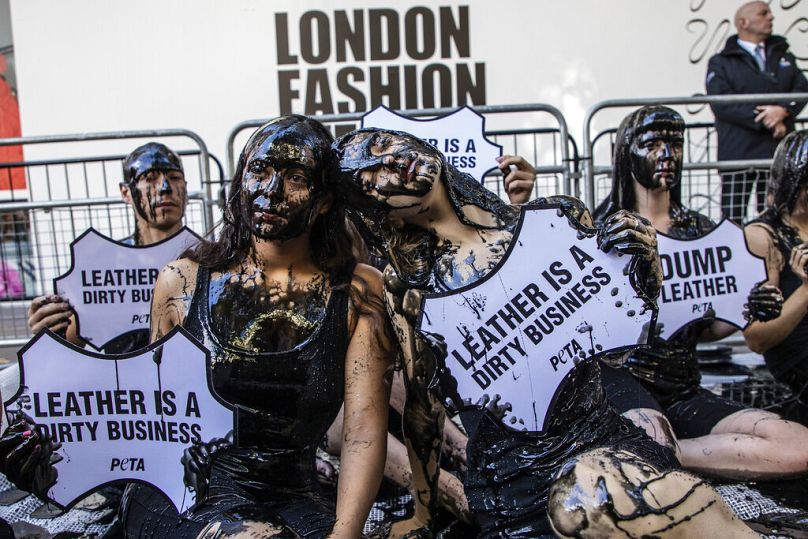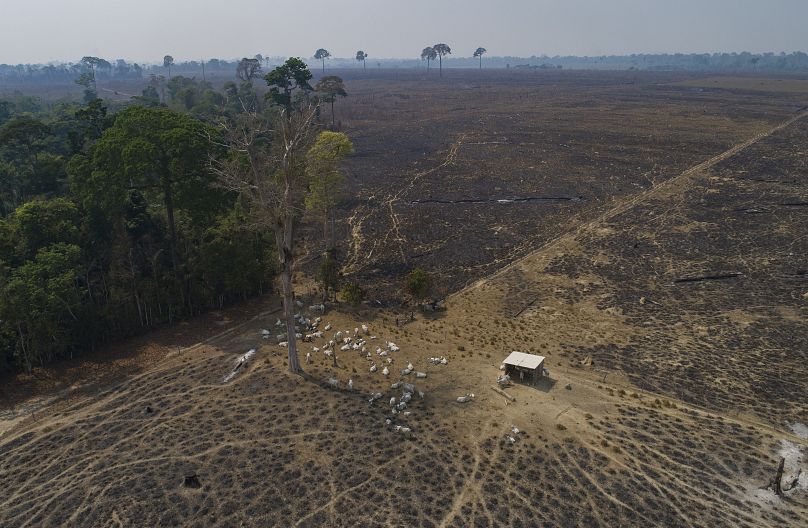Animal rights group PETA praised the US tech giant for creating a “seismic shift” in the industry, as Apple phases out leather accessories.
Apple has been named PETA’s Company of the Year for its “industry-shifting” efforts to stop using leather in its accessories, the animal rights group announced last week.
 ADVERTISEMENT
ADVERTISEMENT
 ADVERTISEMENT
ADVERTISEMENT
“In a seismic shift from the old days of cowhide and crocodile-skin watchbands, millions of watches sold next year will be leather-free, thanks to a pledge from Apple Inc. (...) to throw out leather and expand its use of recycled materials,” PETA (People for the Ethical Treatment of Animals) wrote in a statement.
Apple is the largest company in the world by market cap and last year it sold more than 50 million smartwatches.
The California tech giant announced in September that it would not use leather in any new accessories – including Apple watch straps, wallets and iPhone cases – replacing the material with FineWoven fabric.
According to the company, the new material is a "durable microtwill" made out of 68 percent post-consumer recycled materials with “significantly lower emissions compared to the more carbon-intensive leather.”
“Leather is a popular material for accessories, but it has a significant carbon footprint, especially at Apple’s scale,” said Lisa Jackson, Apple’s VP of environment, policy and social initiatives.
Replacing leather with FineWoven puts Apple on track to meet its goal of making all of their products carbon neutral by 2030, Jackson said.
PETA, whose motto reads, in part, that “animals are not ours to wear,” said it hoped Apple’s actions would set an example for other companies.
Leather is still widely used in consumer products
Leather has been spared the public backlash that fur has received in recent years and is still widely used in the fashion and consumer goods industries.
The global leather market was valued at $440 billion (€402.8 billion) last year and is projected to grow to $740 billion (€677.4 billion) by 2032, according to Fortune Business Insights.
A 2020 report found that vegan leather made up just 2 percent of women’s leather goods produced by luxury brands, led by Stella McCartney.
But public opinion is shifting – in a 2019 poll 37 percent of people surveyed in the UK and 23 percent in the US said they think leather is a “somewhat or very inappropriate material” to use in clothing.
Leather production is linked to a number of practices that harm the environment, including deforestation to grow feed crops, water pollution from tanning chemicals and methane gas emissions.
Recent research has shown that synthetic leather has only a third of the environmental impact of cow leather.
Apple’s environmental track record isn’t spotless
While Apple may have won some points with environmentalists and animal lovers for its stance on leather, it still faces criticism over its aggressive product release timeline, which has been compared to fast fashion.
By releasing product updates every year, often with only slight changes, Apple creates demand for items that users don’t really need and contributes to the piles of e-waste that are growing across the globe.
According to GlobalData, Apple generated 52,490 tonnes of waste in 2021, an increase of 14.8 percent from 2020.
Apple has also been called out for greenwashing – or exaggerating its eco-friendly practices – in countries like Brazil and France.
In 2022, a group of French environmental activists sued the company for indulging in wasteful practices like planned obsolescence, and willfully preventing its products from being repaired.













